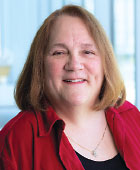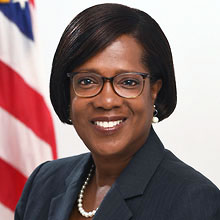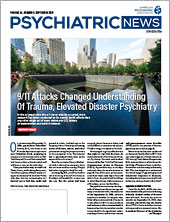I have missed the fall meeting of the American Psychiatric Association—for various reasons, it could not be held last year. I have attended it annually for almost 30 years under its two names: Hospital and Community Psychiatry (H&CP) and then the Institute on Psychiatric Service (IPS).
At this meeting, I made my first academic “presentation,” a poster titled “How Do We Keep Them Down on the Farm: Enticing Residents Into Community Psychiatry.” This was so long ago that the poster consisted of a series of typewritten, large text paragraphs pasted on construction paper. The meeting was also my first introduction to the American Association for Community Psychiatry (AACP) and the first meeting where I felt comfortable, excited, and intellectually inspired. I enjoyed sharing, learning, and networking with like-minded souls in an intimate setting, as it was always smaller than APA’s Annual Meeting and typically held in one hotel. For many community psychiatrists, early career psychiatrists, residents, and medical students, this meeting is their home, focused on population health, “public and community” psychiatry, and discussion of innovative ways to stretch revenue-limited systems of care in an ethical way.
Because there was no fall meeting in 2020, many of its constituents worried about its potential demise. However, the Board of Trustees, based on a presidential work group under Drs. Anita Everett, Altha Stewart, and Bruce Schwartz and led first by Drs. Michael Flaum and Ruth Shim and then by me, endorsed and supported continuing the fall meeting with a modified structure and expanded partnerships. Set for October 14 and 15, this year’s presentation will be virtual, with two major plenaries, multiple breakout groups, and opportunities for live Q&As and networking. APA President Dr. Vivian Pender set this year’s meeting theme: “Sociopolitical Determinants of Mental Health: Practice, Policy, and Implementation.”
We are very pleased to announce that the plenary speaker on October 14 is Dr. Miriam E. Delphin-Rittmon. She is the new assistant secretary of mental health and substance use and the administrator of the Substance Abuse and Mental Health Services Administration. She previously served as Commissioner of the Connecticut Department of Mental Health and Addiction Services for six years and was an adjunct professor at Yale University for 20 years. She is committed to promoting recovery oriented, integrated, and culturally responsive services and systems that foster dignity, respect, and meaningful community inclusion.
Dr. Sarah Vinson, chair of this year’s fall meeting, summarized why psychiatrists should attend: “As 2020 made clear, the bigger world and the laws and structures that frame it shape our country's health, illness, and care. This meeting is designed to frame these issues in an accessible, practical manner so that mental health professionals can take their place in moving our society to a more just and, in turn, more healthy place.” Topics to be covered in breakout sessions led by national leaders include the following:
•
Structural trauma in communities
•
Racism as a sociopolitical determinant of mental health
•
Competencies for Trainees
•
Integrated care and its role in reducing disparities
•
Peer supports/people with lived experiences
•
Serving and working with patients involved in the criminal justice system
•
Structural trauma exacted by the mental health system
•
Community leadership and frontline care
•
Helping your patients deal with adverse effects of climate change
•
Rural and frontier issues in mental health
•
How to teach sociocultural issues in psychiatry
Your chair and Scientific Program Committee have worked hard to develop a relevant program to help hone your clinical skills and knowledge base by addressing issues that are important to the field of psychiatry, to you, your systems of care, and your patients. Please register for the meeting now (go to
psychiatry.org/mhsc) and come home to the fall meeting of APA. Hoping to “see you” there this year and next year (location being explored as I type) face to face! ■


